Howard Jacobson: We ask ourselves how ordinary Germans could stand idly. Today, we must ask: How can so many stand idly by and applaud?
The question frequently asked of German civilians in the 1940s — how could you stand idly by and do nothing? — seems barely more than a casual enquiry compared to what we must ask today: how can you stand idly by and applaud?Who Are We Now?
Not that the academic community that led the cheering for the October 7 massacre has been exactly idle when it comes to fomenting anti-Zionist propaganda. At the forefront of every march and every motion to boycott and divest, tireless in its propagation of lies and half-truths, tolerant only of those who tell the tale they tell, British and American universities have, for the past 20 years or more, been making a mockery of the cherished belief that they exist to question and argue.
That a perfect storm of anti-Semitism has been brewing on university campuses is no secret. Many British Jewish school-leavers choose the best university to go to not by academic reputation but how much anti-Zionist abuse they are likely to encounter.
Ask why the Palestinian case has been taken up with such zest by our universities and the answer will be partly economic — almost as many Muslims pay to study at British universities as there are Jews in the entire population of the United Kingdom — and partly ideological.
It should matter to all of us, and not just Jews, that our tertiary institutions have grown so obsessed with 'colonisers' and the 'colonised' that empire has become the template against which almost every historical event is measured.
As evidenced by Jeremy Corbyn's monosyllabic remarks about Zionism, one needs to know nothing about history to be sure that the founding of Israel was a colonial enterprise.
Question that and you will be accused, as happened to Jewish students at the University of Bristol recently, of being in the pay of the Israeli government.
In fact, nothing could be more laughable than the idea that the first desperate Jews who came limping from the pogroms of Europe, after the Balfour Declaration of 1917 gave its support for 'a national home for the Jewish people' in Palestine, were colonisers or empire builders. Jews had been returning to their homeland for centuries, looking for nothing but a place of peace, spiritual renewal and safety.
Yes, things changed in the succeeding years, but Palestinian intransigence in the matter of sharing the country played a part in hardening Israel's resolve.
This, however, you will not be taught in whichever course preaching the evils of white supremacy you enrol.
And so — despite the academic cheers for Hamas — the bombs fall on Gaza and our hearts break. Is it anti-Semitic to wish Israel could find some other, more subtle and humane way of destroying Hamas?
No. But it is anti-Semitic to rush to false judgments about Israel's actions and intentions, to blame them for what they do not do and to refuse to understand the existential fears that drive their actions. And it most decidedly is anti-Semitic to say: 'There you are — didn't we tell you that Jews love killing babies.'
This might be the most diabolic anti-Semitic trick of all — reactivating the blood libel that has killed millions of Jews so far, and still counting.
Israel’s post-October 7th identity crisisRobert Satloff and Dennis Ross: The Battle for Public Opinion
In the first days, we were overwhelmed with grief. Inconsolable, refusing to believe and already lamenting the death of so many. We hear the stories and mourn bitterly for people we did not know. We stand in long lines and give blood. We donate our money to soldiers, evacuees, the wounded, giving and giving like there is no tomorrow. Our nights are sleepless. Anxious about the fate of the hostages, more and more faces, more and more names, dozens of them babies and kindergarten children. With each passing day, the grip tightens, crushing us more and more.
And from the funeral processions and the visits of condolence, we move on to the collection and volunteer stations, offering to help, otherwise we will go mad with helplessness (this blanket, who will be covered by it? Who will keep warm with this coat?), and a strange feeling of closeness also arises there, in the huge makeshift kitchens and the civic initiatives that help wherever they can, shoulder to shoulder, we harness ourselves and cooperate, efficient, energetic, as one, as if we had been doing this forever.
And in the middle of it all, autumn arrives. The air is sweet and the light soft and milky, as if European. And our city, Tel Aviv, which in the last two years has become unbearable with its endless construction sites, drilling and digging everywhere, long, agitated traffic jams, is suddenly different. Beautiful and paralyzed. Its streets are empty and its roads are quiet, and in the few places that are open the people are hunched over and dazed, careful with their words. Such a small country, and everyone knew someone, and at the edge of every breath a sob quivers.
It has been 24 days since the catastrophe hit, and those first 24 hours repeat themselves over and over again, as if in a loop. Like the sugar-stricken children running in the hotel, we all go round and round in circles, round the sorrow and the rage and the worry about what’s to come, round the regret. 24 days of screaming and crying, how oblivious we were, how stupid.
We are crushed. Our sun shines, but a terrible sense of forsakenness hangs in the air. The concepts of time, the race of life, duties, habits and pleasures, everything is broken. For we are now at war. Our enemy has revealed itself to be indescribably cruel and brutal, and he has also set a contemptible trap for us: above all those innocent Palestinians Hamas uses as its human shield, now in Gaza there are over two hundred Israelis (among them dozens of young kids and babies, for crying out loud!) - what will become of them?
Everything here is pale and silent, and we are gripped by a fear of this war, and at the same time convinced that it is just, inconsolable and resolute, every last one. And in this, too, we are strangers to ourselves: we Israelis, who almost never agree on anything, are suddenly so united. Woe to us, for this has happened to us.
Under pressure from massive street protests, leaders on both sides of the Atlantic have already slid back from the staunch support they promised Israel in the immediate aftermath of the carnage of Oct. 7. In just three weeks, that spirit of solidarity has increasingly given way to calls for a ceasefire. Israel will resist such calls, since a ceasefire would leave Hamas in control of Gaza, certain to rebuild and rearm, readying itself to launch future attacks.
To be sure, much of this reflects the double-standard to which Israel has long been subjected. When thousands of Afghan or Iraqi civilians died in America's legitimate campaigns against al-Qaeda and other jihadist groups, it was called an unfortunate consequence of war. Yet Israel is accused of genocide.
As this war unfolds, we urge Israel to focus on three themes that, if repeated every day, would improve Israel's information campaign. First, Israel should remind the world what this war is not about. Israel should declare it has no plan, desire or goal to occupy Gaza or to evict Palestinians from Gaza.
Second, Israel should make clearer the distinction between Hamas and the Palestinian people. Yes, Hamas earned a plurality of votes in a legislative election 17 years ago when it ran on an anticorruption, good governance platform. But it came to power in Gaza the following year through a bloody, violent coup, not by the democratic choice of local Palestinians. Hamas commands the loyalty of a small minority of Gaza's population.
Third, Israel should continually emphasize that it is committed to fighting Hamas with the minimum possible civilian casualties, while trying to meet the humanitarian needs of the civilians it has urged to move out of harm's way to southern Gaza. For the antisemites of this world, none of this will matter. But the goal is to win the hearts and minds of millions who need a reason to give Israel the benefit of the doubt.


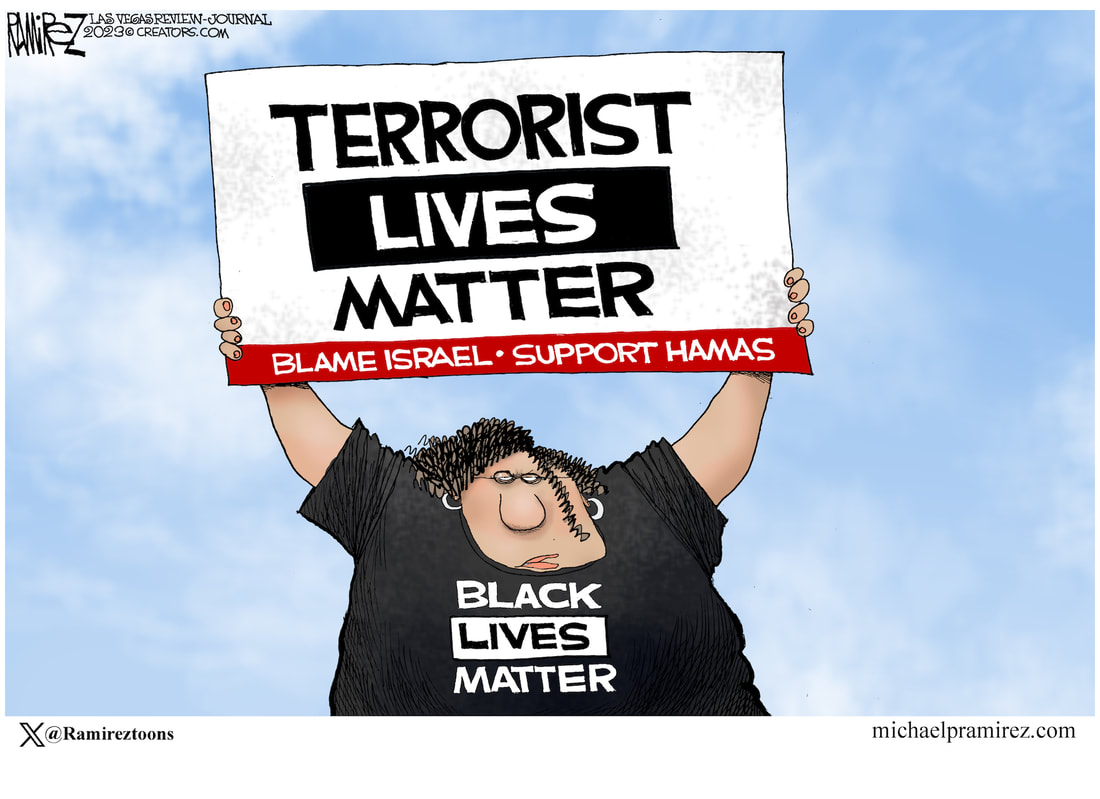
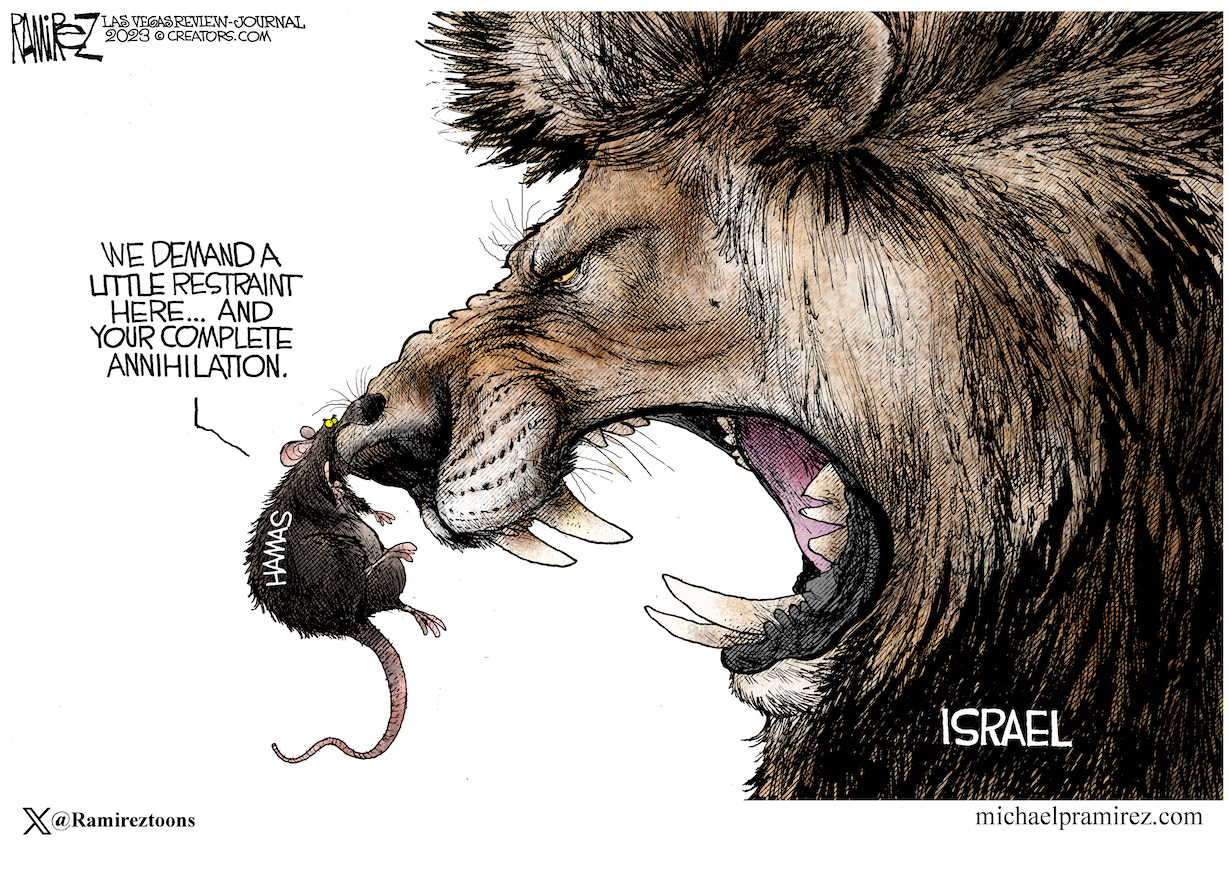















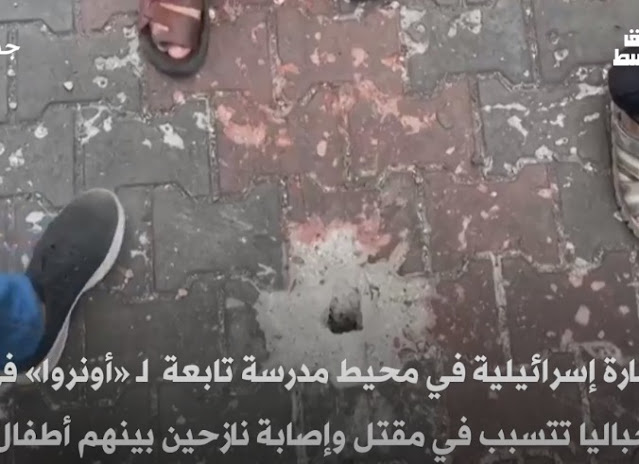






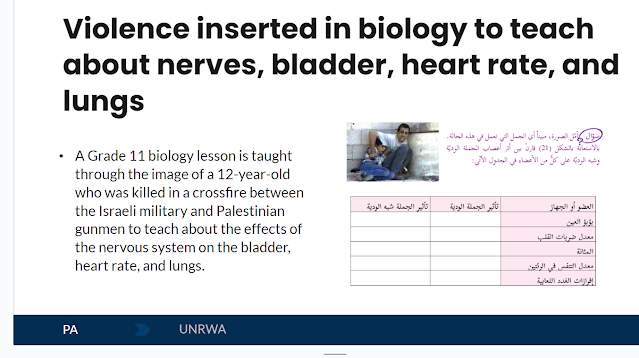

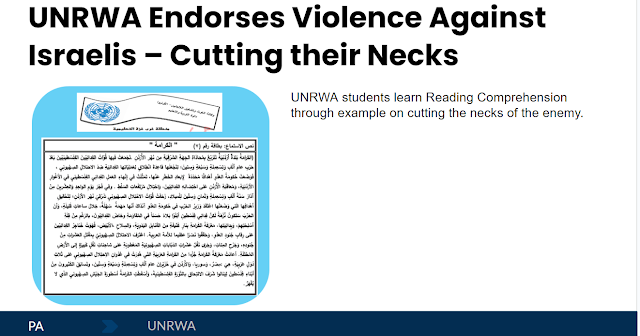

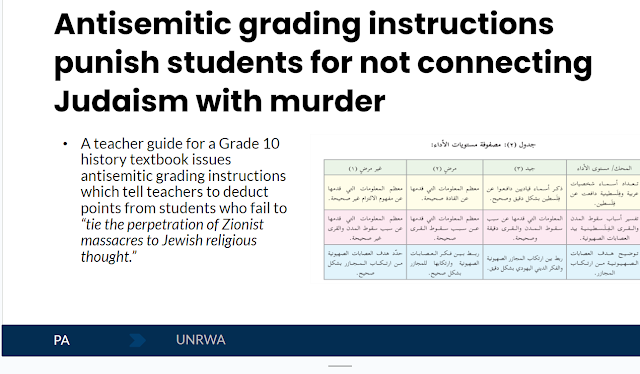

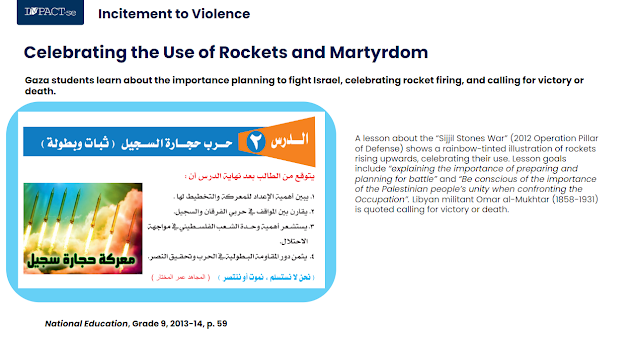
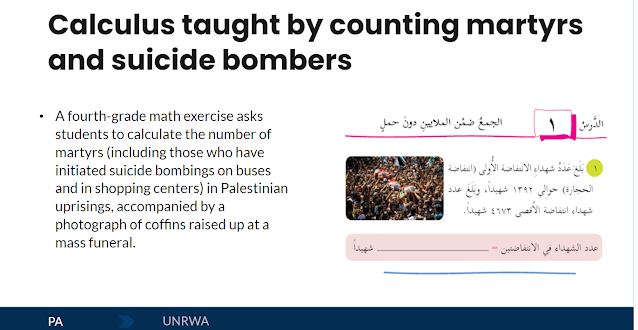


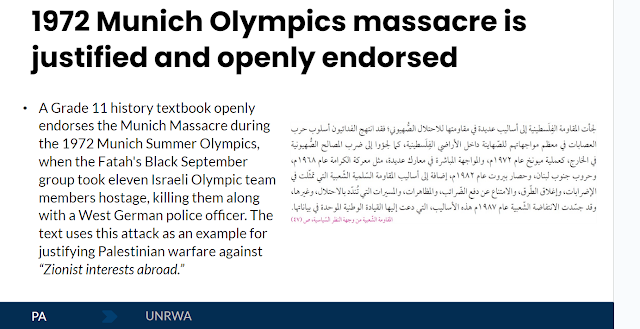



















.jpg)





